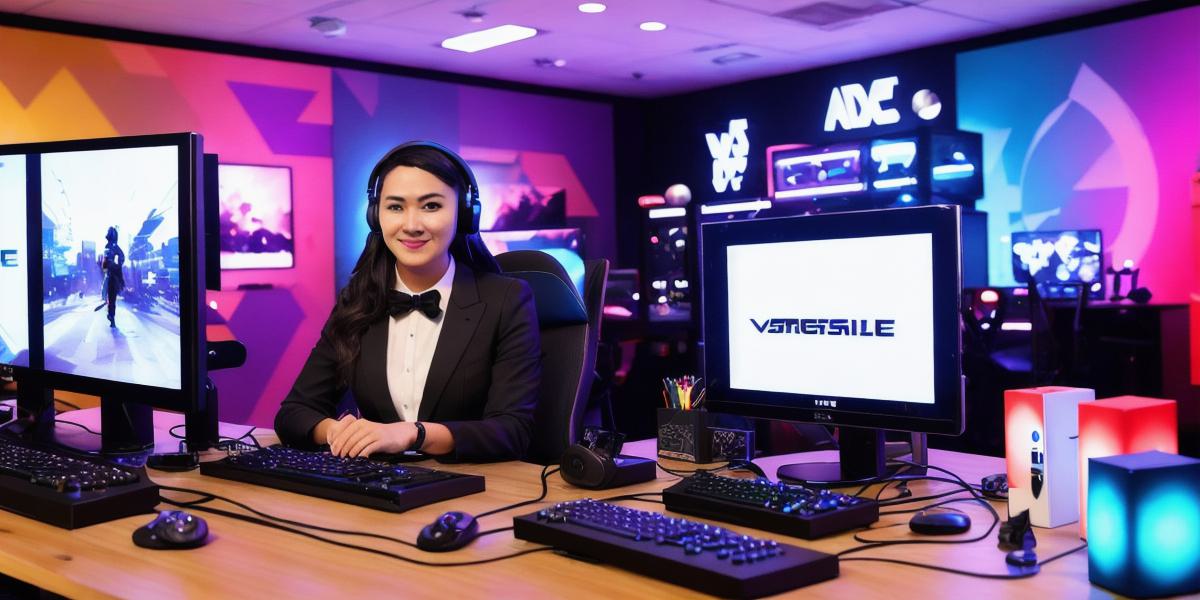Game development is an exciting and rapidly growing industry that offers game developers the opportunity to create immersive worlds, engaging characters, and innovative gameplay mechanics. However, becoming a successful game developer requires more than just a passion for gaming; it also requires a set of essential skills and knowledge that will help you succeed in this competitive field. In this article, we will explore some of the most important skills and knowledge required to become a successful game developer.
- Programming Skills

Programming is at the heart of game development, and having strong programming skills is essential for creating games that run smoothly, look good, and are easy to maintain. Popular programming languages used in game development include C++, Unity, and Unreal Engine. Learning these languages will give you a solid foundation in game development and open up opportunities for more advanced work.
C++ is a high-performance language that is commonly used in the development of PC and console games. It offers low-level control over system resources, making it ideal for creating complex graphics and physics systems. Unity is a popular cross-platform game engine that allows developers to create 2D and 3D games for multiple platforms, including iOS, Android, Windows, and macOS. It features an easy-to-use editor and a large community of developers who provide support and resources. Unreal Engine is another powerful game engine that is used in the development of PC, console, and mobile games. It offers advanced graphics and physics capabilities, as well as support for virtual reality and augmented reality development. - Game Design Principles
Game design principles are the fundamental concepts that guide the creation of any game. These principles include things like level design, character animation, sound effects, and user interface. Understanding these principles is critical to creating games that are engaging, intuitive, and fun to play.
Level design involves creating the physical space in which the game takes place. This includes designing the layout of each level, as well as placing obstacles, enemies, and collectibles. Good level design should be challenging but not frustrating, and it should provide players with a sense of progression and achievement. Character animation involves bringing digital characters to life by animating their movements, expressions, and actions. This requires an understanding of movement mechanics, timing, and timing. Sound effects are an essential part of game design, as they can enhance the atmosphere and mood of the game, as well as provide feedback and cues for players. User interface (UI) design involves creating the visual elements that players interact with in the game, such as menus, buttons, and controls. Good UI design should be intuitive, easy to use, and visually appealing. - Creativity and Problem-Solving Skills
Creativity and problem-solving skills are essential for game development. You will often need to come up with innovative solutions to complex problems, such as how to make a character move in a certain way or how to create an engaging level that keeps players coming back for more. These skills will also help you stay motivated during the long development process and ensure that your games are always improving.
To be a successful game developer, you need to have a creative mindset that allows you to think outside the box and come up with unique ideas. You should also have strong problem-solving skills that enable you to tackle complex challenges and find solutions that work. This may involve brainstorming sessions with your team, testing different approaches, and refining your ideas based on feedback and user testing. - Teamwork and Communication Skills
Game development is typically a team effort, with many different people working together to bring a game to life. This includes artists, writers, sound designers, programmers, and more. Effective communication and teamwork skills are essential for ensuring that everyone is on the same page and working towards the same goals.
Good communication skills involve being able to clearly convey your ideas and listen actively to others. This includes using tools like project management software, video conferencing, and instant messaging to stay in touch with your team members and keep everyone informed about progress. Effective teamwork skills involve being able to work collaboratively with others, share ideas, and give and receive feedback constructively. - Project Management Skills
Project management is critical to successful game development. It involves planning, organizing, and coordinating resources to ensure that projects stay on track and within budget. Good project management skills will help you keep your team focused and motivated, and ensure that your games are delivered on time and to the highest quality.
To be a successful game developer, you need to have strong project management skills that allow you to plan and execute complex projects with multiple stakeholders. This may involve creating detailed project plans, setting milestones, and tracking progress regularly. You should also be able to adapt your approach as needed based on changes in requirements or priorities. - Marketing and Business Skills
Marketing and business skills are essential for game developers who want to succeed in the industry. These skills include things like market research, product positioning, pricing strategy, distribution channels, and monetization models. Understanding these concepts is critical to ensuring that your games reach your target audience and generate revenue.
To be a successful game developer, you need to have strong marketing and business skills that enable you to identify market opportunities, create compelling value propositions, and develop effective go-to-market strategies.
